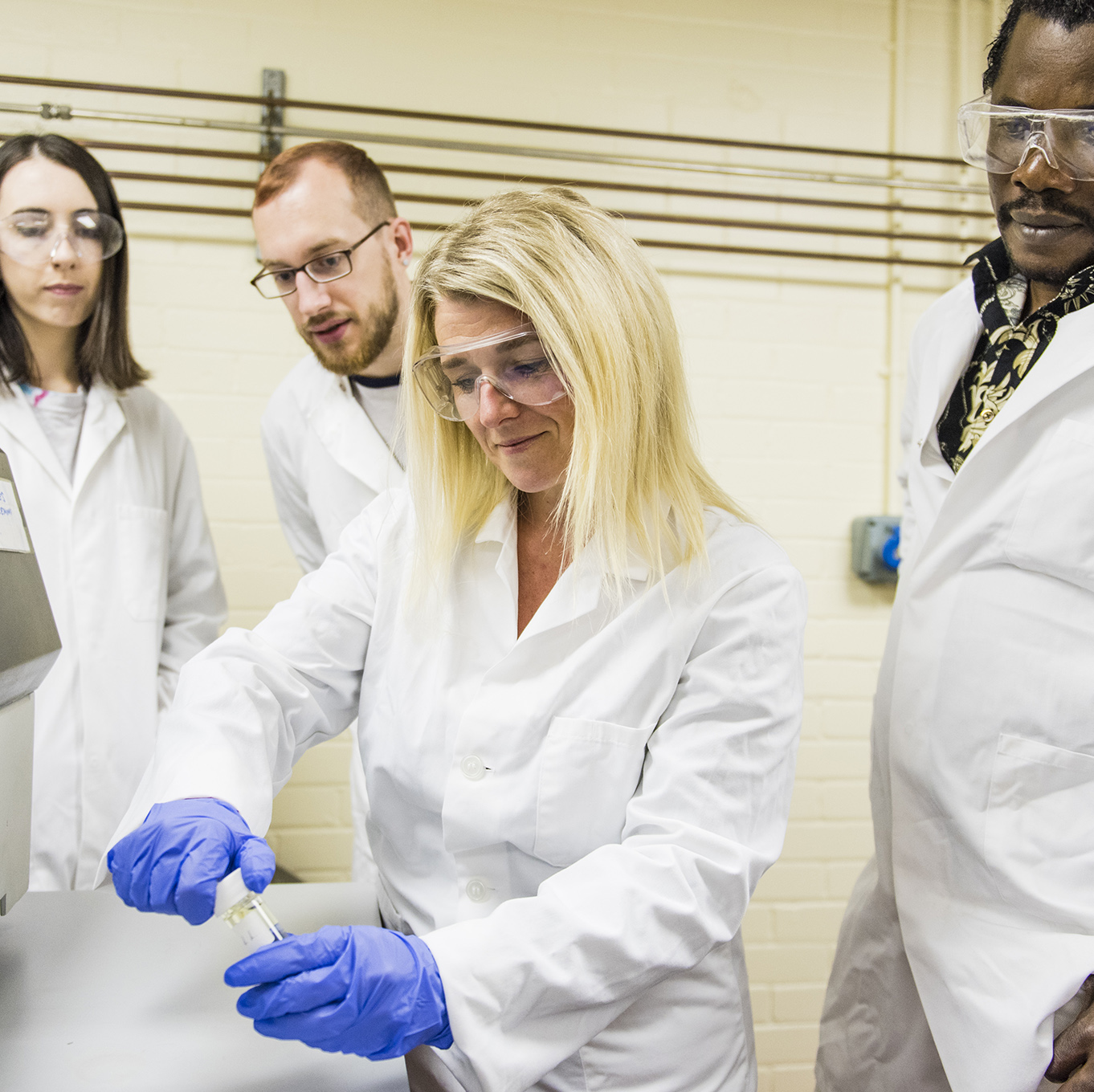FAST Research Seminar Series #3 - Science

In December, Dr Jixin Yang chaired the fourth Research Seminar in the series hosted by what was originally FAST. The theme was Applied Science and the first speaker presented a very complicated-looking title for those not researching this area:
Nanocrystalline cellulose: An investigation of greener synthesis approaches and applications in novel, eco-friendly formulations.
PhD Student Kev Jones gave this fascinating and engaging talk about nano-sized crystalline cellulose that comes from plants. All types of objects contain these crystals, such as cardboard, cotton wool, and paper. The crystalline cellulose is globally recognised as safe, biocompatible (not causing an adverse reaction) and biodegradable, so it can be used in the packaging, construction, and pharmaceutical industries; this minuscule crystal really sounded like a little superhero. In fact, the cellulose has a mechanical strength greater than steel!
It is also used in applications for thickening certain liquids, such as tomato ketchup. Kev told us how his brother narrowly missed out on fame by contacting Heinz and requesting they switch to plastic bottles rather than using glass to save whacking the bottle to get the sauce out.
Next, Kev told about their experiment of adding cellulose nanocrystalline to gum arabic. Small additions of the crystalline cellulose increased the viscosity of the gum arabic. Kev has established the effect and will progress this research to investigate why the effect occurs.
We can’t wait to hear more from Kev, who was a fantastic science communicator (if you need any tips, we’re sure he won’t mind you reaching out).
Next up, our Chair chaired their own session titled, Renewable Energy – A Case Study on Chinese Approaches. Dr Jixin Yang outlined the recent outcome of COP29 – that countries must reach a “deep, rapid, sustained reduction of carbon emissions…”, which varied little from what has been said before.
Jixin presented some statistics about countries’ net-zero targets, mentioning that Bhutan has already reached its carbon net-zero emissions target (go Bhutan!). However, for a much bigger country like China, it’s a bit more of a mammoth task. China is the biggest carbon dioxide emitter in the world and the largest coal miner and producer. But China is also the world’s biggest investor in renewable energy and is actually on track to achieve its goals.
Jixin proceeded to explore China’s renewable energy sources, such as the long-awaited Three Gorge Dam, which will dramatically reduce flooding in the areas adjacent to the Yellow and Yangtze Rivers. This dam and power station now generates 3% of China’s power and is the world's largest power station. It even set a world record for annual power generation volume.
Other means of renewable energy were wind energy, with China being the world leader in wind power generation; bioenergy/biomass energy; and solar energy, with China being the largest market manufacturer in the world for photovoltaics devices. It sounds like China is on the right track for knocking itself off the top of the leaderboard as the world’s biggest carbon dioxide emitter.
Thank you both for the wonderful insights into applied science and renewable energy. The next FAST Research Seminar will be on Technology & Engineering, hosted on 24 January, 2-4pm. We hope to see you there!
